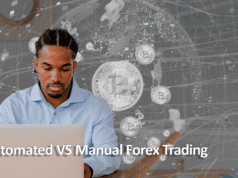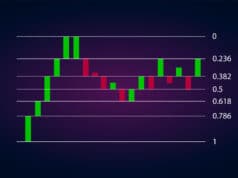Spot FX is the buying and selling of currencies, with the exchange taking place at the point of trade. The price at which the currencies are exchanged is referred to as the spot price.
In actual terms, Forex trading is a method of speculating on foreign currencies without actually owning the underlying assets. Currency trading choices include spot, FX options, and FX forwards. Spot currency trading is the simplest. As a result of reduced spreads, many traders prefer to trade forex on the spot because it is generally less expensive to open a position and hence more cost-effective.
Spot vs. forward currency exchange rates
The cost of transacting in a spot market is referred to as a spot rate. Forward rates are similar in that they settle a transaction cost for a future event. If you take the interest rate and bond maturity in the bond market as examples, then the forward rate represents the predetermined yield.
Commodity bond prices are defined by the expected return over a certain period of time. An investor who buys a bond that is nearing maturity will pay a higher forward rate than the interest rate.
Currency markets typically distinguish between the forward and spot rates, with the former referring to an agreed-upon exchange rate in the future and the latter representing the current exchange rate of a particular currency pair.
How is the spot rate determined?
In order to carry out spot foreign currency transactions, the following procedures are commonly used:
Direct execution
There is no third party involved in a direct spot swap execution. One of the most common ways of doing this is through telephone-based communication between the buyer and seller on trusted spot exchange platforms.
Electronic broking
Using an automated order matching system, known as the electronic broking platform, which is reserved for currency dealers, facilitates efficient electronic trading between two parties.
Electronic trading market
In these markets, traders have the option of using either a single-bank or multibank dealing system to execute their trades. These trading execution systems have computer software created specifically to assist traders. These services provide investors with real-time market rates, which they can utilize to trade.
Inter-dealer voice brokerage
An inter-dealer voice broker executes trades over the phone with another broker. As a financial middleman, the broker’s job is to make it easier for two currency traders to conduct business. Institutional clients, including insurance firms, can use voice brokers to make trades on their behalf.
Trading spot markets: how to manage risk
Appreciate the market
To be successful in trading and investing, traders and investors must be familiar with the spot market. It entails knowing how the spot market’s demand and supply functions, trading terminologies, and all other necessary details. Traders should also be familiar with the characteristics of other market players and the regulatory framework of a spot market before participating.
Create a trading plan
Spot market traders must have a trading strategy in place before engaging in any transactions. Before taking a position, traders should decide on their own entry and exit levels for different individual pairs.
With the help of stop and limit orders, a trader may make better decisions on whether to continue with a trade, hold it and wait, or get out of it altogether.
Take control of your emotions
When trading on the spot market, the turbulence in the financial markets can affect your emotions. As a result, controlling your emotions is critical to making a profit in the market. Anxiety and dread are some of the emotions that can get in the way of successful trading. Emotions like these can impair judgment and decision-making, which can lead to a bad trade.
Keep up of current affairs and news
Investors who plan to make a trade should keep up-to-date with current news and developments on issues affecting the instruments or commodities traded on spot markets.
Investors in the spot market must pay attention to market mood, economic and financial news, and political and regulatory pronouncements. When making a spot trade choice, take into account any news that has an impact on the price of the target asset.
Advantages of spot FX
- The spreads on spot markets are often tighter than on forwards or futures markets since they are extensively traded.
- You stand to benefit from overnight swap earnings if the currency you’re holding has a higher interest rate than the one being sold. Buying the EURJPY, for example, means buying your EUR for JPY. Because of the interest rate difference, if interest rates in Germany are higher than in Japan, you’ll get a modest credit in your account for every night you hold your position. If you possess the currency with the lower interest rate in the pair, you must make daily payments equal to the interest rate difference.
- Spot positions, in contrast to futures and forward contracts, have no expiration date.
As a result of the fact that the spot rate price never expires and remains constant, trading charts are also continuous. Traders will be able to see years of price history, which will help with analysis. Futures and forwards charts, on the other hand, may only display price movement going back a few months.
Disadvantages
- Because of the volatility that is typical of some pairs, an investor may end up purchasing at an overly inflated price, only for the price to come down a short moment later. As a result, trading in the spot market comes with a high level of risk.
- Once the spot market transaction is complete, a party may have no recourse if they discover trading irregularities.
- While forwards and futures involve parties agreeing on a future settlement and delivery date, spot trading normally lacks that kind of planning.
- Due to the fact that physical delivery must be handled right away on the spot market, it is not possible to trade on a flexible schedule.
In summary
The spot market is a legitimate and potentially highly profitable market. Nonetheless, it has a high level of risk exposure. Understanding the market’s mechanics makes it easier to recognize potential hazards and take precautions against them.




